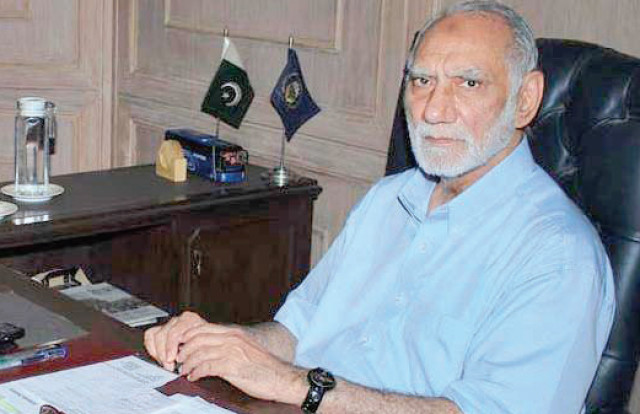Sialkot ready to face new challenges
Acute power shortages and high prices of utilities have pushed the cost of production upward.

He explains that selling goods in the international market is like an expedition and that the government is supposed to help exporters get a larger share of international markets.
He elaborated on the situation with exports in the country, saying that these were not satisfactory and that exporters were not being provided with the facilities that they required to capture the international markets.
“Customers have reservations about placing orders and they sometimes cancel already placed orders because they fear that the law and order situation will get out of hand,” said Butt, who was troubled to comprehend as to how such a small problem became one of the main obstacles to export growth. He even said that foreign investors hesitated to visit Pakistan.
Acute power shortages and high prices of utilities have pushed the cost of production upward and caused a delay in completing the orders. “We want a reduction in power outages to ensure that we can deliver our orders at the stipulated time otherwise our reputation suffers,” said Butt.
Irrationally high priced and low quality raw material is also a problem, sometimes raw material is unavailable and has to be imported which makes the products unnecessarily expensive, causing wastage of time, he said and suggested that the government establish a material bank to resolve this issue. He added that easy and low mark-up financing schemes would also help exporters, especially if they were focused through better credit facilities because currently high markup rates are hindering the expansion of exports.
Sialkot’s export processing zone had been unsuccessful because it was currently located outside the city and was not easily accessible, said Butt, talking about why Sialkot’s export processing zone had not been doing much for the city. But he did point out that given the proper environment it could do much for the city.
The budget
Butt said that the budget for the year was nothing special and did not address basic issues faced by the common man. It reflects the government’s policies and priorities and suspended subsidies on ghee, grain and flour, rather than taking steps to combat the horrible price hike.
He expressed worries about essential commodities becoming too expensive for people to afford because of the one per cent increase in the General Sales Tax (GST) and said that electricity and gas rates had been increased to satisfy the International Monetary Fund despite the government being well aware of the pathetic condition that people are facing.
“The Benazir Income Support Programme is the only scheme framed to support the poor but it provided benefits to only a few families which is insufficient,” he said.
The issue of severe power shortages was mentioned in the budget speech but no power project was announced, asserted Butt, stating “it seems that Nepra and Ogra are being carte blanche to regarding the prices they could charge for oil and gas.”
The chamber
The Sialkot Chamber of Commerce and Industry tries to play a role for the economic and social development of the city and it is a representative organisation of industrialists which contributes its services for the promotion and development of trade, industry and commerce.
It basically, like other chambers of commerce, serves as a bridge between the government and business community. It provides facilitation to the business community on one hand and helps the government in formulation of trade, economic and industrial policies through workable proposals, suggestions and recommendations on other hand. The chamber communicates the business community’s problems and tries to get them solved. Other than that, it keeps its members updated with international market changes and helps them to cope by exploring new markets for the exporters, forming trade delegations, arranging meetings with foreign buyers, sharing research and developing information.
Published in The Express Tribune, August 19th, 2010.



















COMMENTS
Comments are moderated and generally will be posted if they are on-topic and not abusive.
For more information, please see our Comments FAQ